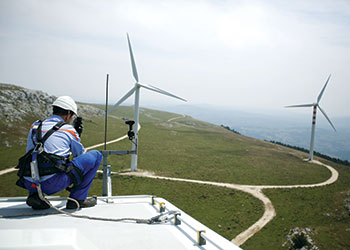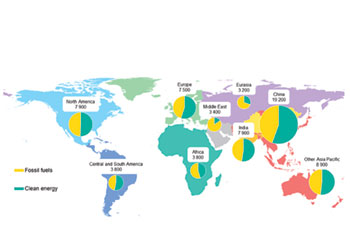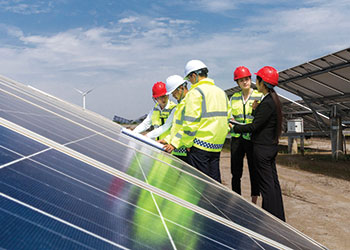
 Data shows that fossil fuel workers do not travel far to fill green jobs opportunities
Data shows that fossil fuel workers do not travel far to fill green jobs opportunities
As of 2019, about 1.7 million people worked in jobs across the fossil fuels industry in the US, many of them in the regions fromTexas and New Mexico to Montana and from Kentucky to Pennsylvania.
As the country transitions from fossil fuel use to clean energy to protect the climate, many of those jobs will disappear.
Policymakers tend to focus on skills training when they talk about the importance of a just transition for these workers and their communities, a report by the World Economic Forum said.
To seehow fossil fuel workers’ skills might transfer to green jobs, researchers Morgan Frank, University of Pittsburgh, and Junghyun Lim, University of North Carolina at Chapel Hill, used occupation and skills data from the US Bureau of Labor Statistics to compare them.
These profiles provide information about the required workplace skills for over 750 occupations, including earth drillers, underground mining machine operators and other extraction occupations.
Overall, the study found that many fossil fuel workers involved in extraction already have similar skills to those required in green occupations, as previous studies also found.
Infact, their skills tend to be more closely matched to green industries than most other industries.
Job-to-job flow data from the US Census Bureau showed that these workers historically tend to transition to other sectors with similar skills requirements.
Thus, fossil fuel workers should be able to fill emerging green jobs with only minimal reskilling.
However, the data also shows that these fossil fuel workers typically do not travel far to fill employment opportunities.
A mapping of the current locations of wind, solar, hydro and geothermal power plants using data from the US Energy Information Administration found that these sites had little overlap with fossil fuel workers.
The US Bureau of Labor Statistics’ projections for where green jobs are likely toemerge by 2029 also showed little overlap with the locations oftoday’s fossil fuel workers.
These results were consistent across several green employment projections and different definitions of "fossil fuel" occupations. That’s alarming for the prospects of a just transition.
It is now for policymakers to explore incentives and programs that help fossil fuel workers relocate.
Alternatively, policymakers could design incentives for green industry employers to build in fossil fuel communities.
This might not be so simple since green energy production often depends on where the wind blows strongest, solar power production is most effective and geothermal power or hydropower is available.








































































